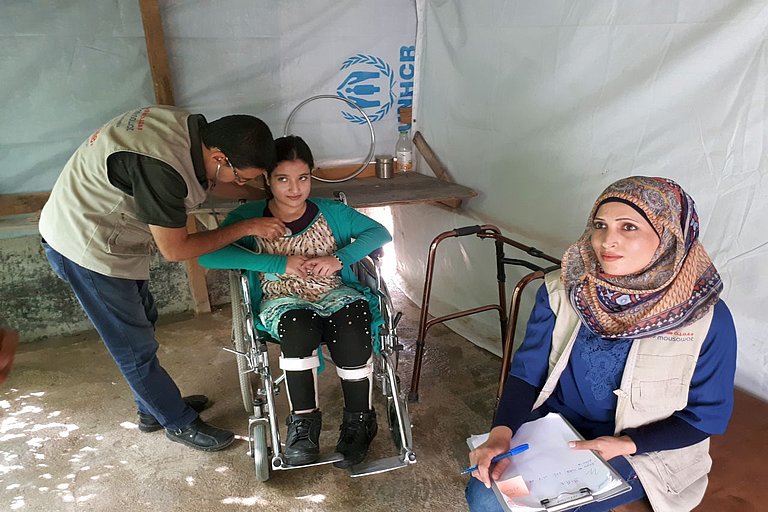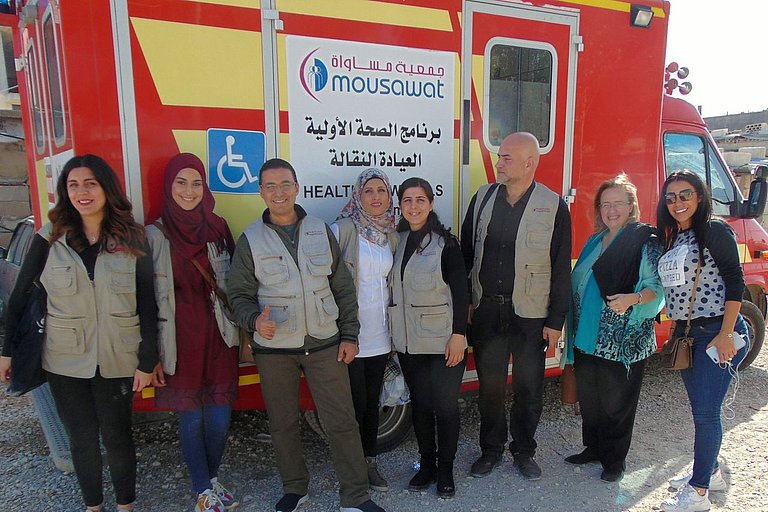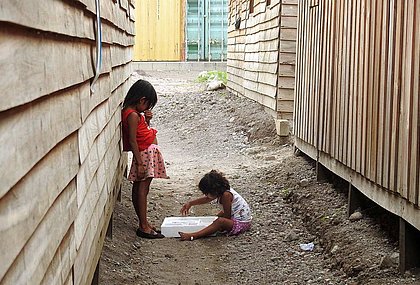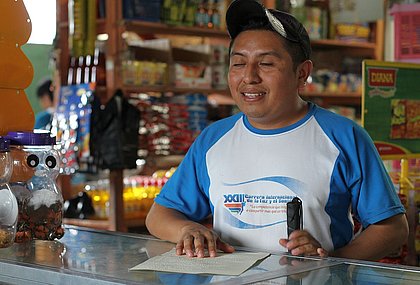The humanitarian crisis in Syria is regarded worldwide as one of the worst of our time. By 2019, more than 6.1 million people were displaced within Syria. Nearly 6.7 million have found refuge mainly in neighbouring countries. 342.875 of the registered Syrian refugees live in the Bekaa Valley in eastern Lebanon, in some cases in very remote and disadvantaged regions. Here the people are still suffering from the effects of nine years of conflict: community networks and safety nets have disappeared and access to medical care and food is severely restricted. Refugees with disabilities face many challenges in meeting their basic needs for rehabilitation and medical care.
High costs for basic medical care
Although the UNHCR declares that Syrian refugees in Lebanon have non-discriminatory access to public and private health care facilities, the Lebanese health care system is largely privatized. As a result, fees are a major obstacle. In primary and hospital care, costs, such as treatment and doctor's fees, but also transport costs, are the main obstacle to access to the required care. Moreover, people with disabilities have limited access to specialized care and rehabilitation.
Emilie Combaz, an independent researcher, describes in her research report on the situation of people with disabilities in Lebanon, published in 2018: "There is a systematic lack of rights, resources and services for people with disabilities in Lebanon, which is primarily due to the inaction of the state. As a result, people with disabilities experience widespread discrimination, marginalization, exclusion and violence by a range of governmental and non-governmental institutions and individuals - at home and abroad. This applies to all areas of their lives. In particular, work and basic services for them are scarce, inaccessible and of poor quality".
A mobile clinic with a holistic approach

Together with our partner organization Mousawat, we facilitate access to the necessary medical care for these people: Through a mobile clinic, refugees with disabilities can be easily reached and receive medical care. On board the clinic are doctors, nurses, physiotherapists, psychologists and social workers. Therefore, our project offers medical, physiological and psychological support.
The mobile clinic covers the costs of medical examinations, transport, medication, physiotherapy and neurological advice. It also covers other necessary rehabilitation services that the person with disability needs to become physically independent and more autonomous. The mobile clinic also provides aids and corrective devices such as wheelchairs, orthoses, prostheses and hearing aids.
In addition, the Mousawat project team fills the knowledge gap regarding people with disabilities and promotes integration and awareness raising in the general society: awareness sessions and community activities are carried out by the project team in the settlements. These are intended to make a further important contribution to better living conditions for people with disabilities. The aim is to facilitate the inclusion of people with disabilities and to achieve greater acceptance through dialogue and exchange.
Projectinfo
| Project | Provision of primary health care/rehabilitation and inclusion for refugee disabled people in Bekaa Valley, East Lebanon |
|---|---|
| Place/Region | Bekaa-Tal, East Lebanon |
| Partner | Volkshilfe Solidarität (Austria), Mousawat (Lebanon) |
| Target group | Syrian and Palestinian refugees and vulnerable members of the host communities with a focus on people with disabilities. 940 people are reached directly and 7,825 people benefit indirectly from the project activities. |
| Activities |
|
| Duration | 2020 - 2021 |
| Budget | 170.170 Euro |
| Sponsor | Aktion Deutschland Hilft, Nachbar in Not (NiN), Volkshilfe Solidarität, AWO International |


